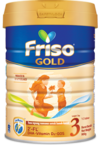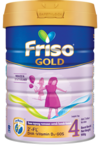Week 1 of Pregnancy: Preparing And Identifying the Symptoms
When you first start your pregnancy journey, you're filled with excite.... read more

Folic acid is an important nutrient when it comes to conceiving a child. Ever wonder how much folic acid you need to take during your pregnancy? How to integrate it into your daily diet? Or the benefits it offers you and your child? Don’t worry mummies, we’ve got you covered.
It's no secret that good nutrition is essential during pregnancy - which is why mummies-to-be need plenty of fruit, veggies, whole grains, and lean protein for their diets. By now, you should be aware about the importance of taking daily prenatal vitamins. One of the most important ones is folic acid.
You might not have thought much about folic acid before because better-known vitamins and minerals tend to be at the forefront when it comes to pregnancy supplements. However, this B-vitamin, which is also known as folate in food form, is crucial for your child’s healthy development even before conception.
Let’s dive in to know more about folic acid – what it actually is, how it helps during your pregnancy, the amount you should take, and which foods give you the best and affordable amounts of folic acid.
Folic acid is the synthetic version of folate, a B-vitamin (specifically vitamin B9) which is found in certain fruits, vegetables, and nuts.
Folic acid is found in vitamins, too. These include fortified foods such as bread, pasta, and cereals. This nutrient helps the body break down, use, and create new proteins – the building blocks of our cells. It also plays a role in the creation DNA, red blood cells and other genetic material. It's even great for your hair, skin, and nails.
During the first few weeks of pregnancy, folic acid helps the embryonic neural tube, the precursor to your child's brain and spinal cord, to properly close. This also assists in the formation of baby's heart and circulatory system and helps lower the chances of major birth defects of the child's brain and spine (neural tube defects).
Folic acid is water-soluble – which means your body isn't able to store an excess amount. It gets passed through your urine instead, so you’ll need to regularly supplement enough folic acid into your diet to avoid a deficiency when you're pregnant. It's especially important to get enough folic acid as early on as possible since most birth defects develop in the first few weeks of pregnancy.
The Centers for Disease Control and Prevention (CDC) encourages women who are of reproductive age to consume 400 mcg of folic acid each day, in addition to food with folate from a varied diet. Ideally, a woman's total daily dose should be about 600 mcg from all sources. For best effect, women planning to conceive should start supplementing months before conception.
There are lots of benefits of folic acid and loads of research have shown that when this nutrient is started in the months preceding pregnancy, it has important health benefits for expecting mummies. Taking folic acid supplements supports prenatal development and reduces the risk of morbidity, such as:
Think of your daily prenatal vitamin supplements as a nutritional backup plan during pregnancy – it's useful on days when you feel too sick to eat. Now, it's important to know that a multivitamin product or supplement tablet cannot replace a healthy diet for pregnant women. Therefore, it's vital to consume folate-rich foods when you're expecting, since they are also full of many other important nutrients for your newborn like fibre, calcium, vitamin A and vitamin C.
Speaking of folic acid supplements, Frisomum® Gold is formulated with DualCare+™ essential nutrients (that includes Folic Acid!) to support physiological changes during pregnancy and provides a good foundation for your ever-growing child. Frisomum® Gold is also low in Glycemic Index (GI) to help pregnant mums maintain a healthy weight throughout their pregnancy.
In addition to supplements, here are some food sources that are rich in folic acid (especially breakfast foods), which you can integrate in your maternal diet. Do note that folate is extremely sensitive to cooking.
There you go, mummies. We hope this piece has helped you in knowing more about folic acid supplements for your pregnancy. Always remember to pair it with a healthy diet so your child can be healthy. If you have any more questions, don't hesitate to check with your GP or nutritional specialist.
Reference:
Folic Acid During Pregnancy
https://www.whattoexpect.com/pregnancy/pregnancy-health/folic-acid-during-pregnancy/
Folic Acid Helps Prevent Serious Birth Defects of the Brain and Spine
https://www.cdc.gov/ncbddd/folicacid/features/folic-acid-helps-prevent-some-birth-defects.html


